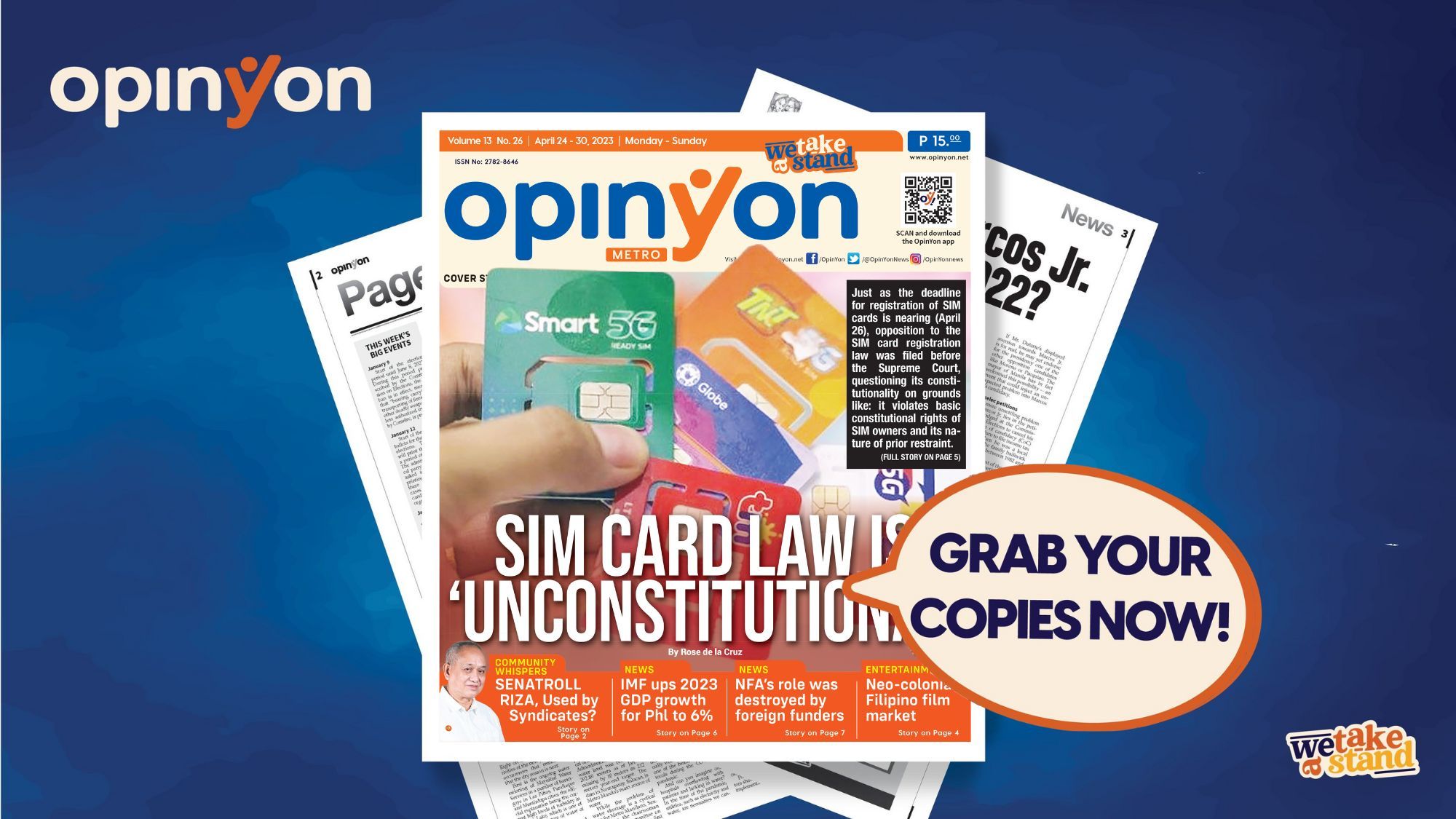A 59-page petition of the National Union of Journalists and several individuals citing the SIM Card Registration Law as ‘unconstitutional as it violates the rights of SIM card users’ has been filed at the Supreme Court on April 17.
The petitioners want the SC to issue a temporary restraining order and/or a writ of preliminary injunction enjoining the implementation of the law pending resolution of the petition. The deadline set for registration of all SIM cards is April 26.
The assailed law is unconstitutional as it violates their right to freedom of speech by imposing a system of prior restraint; right against unreasonable searches and seizures and to privacy of communication by intruding into the petitioners’ reasonable expectation of privacy and circumventing the requirement of a judicial warrant; and substantive due process by intruding into the life, liberty, and property of petitioners.
The petitioners said as of April 7, 2023, the Department of Information and Communications Technology (DICT) estimated that 168,977,773 SIM cards are currently in use in the country, of which 106, 807,505 or 63.21 percent SIM cards are yet unregistered and could be deactivated after April 26.
The petitioners also urged the Court to order public telecommunication entities (PTEs) to cease and desist from using, storing, transferring, and processing all information gathered into the SIM register and to destroy data already gathered.
“Given the nature of cell phones and devices connected to the internet, the SIM Registration Act partakes in the nature of prior restraint. On its face, the law chills all speech done through SIM cards if disclosure is not made,” the petition read.
“By imposing a condition to speech expressed through the modern-day equivalent of the printing press, the SIM Registration Act imposes prior restraint,” it added.
The deactivation of these SIM cards, according to the petitioners, will affect the government dissemination of public service announcements and ordinary citizens will not be able to capture, share, and discuss the misbehavior of their public servants—a right so vital in a democratic country.
Owners of unregistered SIM cards will be deprived of essential online services such as digital banking, online shopping, and transportation to courier services, they said.
“Unregistered Filipinos will not be able to use internet services, websites, and social media platforms that require phone numbers as a mode of receiving one-time passwords (OTPs) to secure or recover user accounts,” they explained.
The petitioners also argued that they have reasonable expectation of privacy over their SIM cards, such as who to have or to pass on information it contains.
“As such, the law’s compelled disclosure, which is not sanctioned through a search warrant, and the subsequent exempted access of law enforcement, constitutes an unreasonable search under the Constitution,” the petitioners said.
“Filipinos’ objective expectation of privacy over their cell phones and SIM cards, learned and committed to heart because of fears of spams, scams, and surveillance, both from government and corporations, have taught us to hesitate before sharing, to vet before registering, and to adopt and update security measures whenever possible,” they added.
The petitioners also argued that the law violates free access to courts by limiting access to justice only to registered devices.
Respondents are: the NTC, the National Privacy Commission, DICT, the Department of Trade and Industry (DTI), Department of the Interior and Local Government (DILG), Department of Education, and telcos Globe Telecom Inc., Smart Communications, Inc., Philippine Long Distance Telephone Company (PLDT), Dito Telecommunity Corporation, Digitel Mobile Philippines Inc., Sun Cellular and Cherry Mobile

